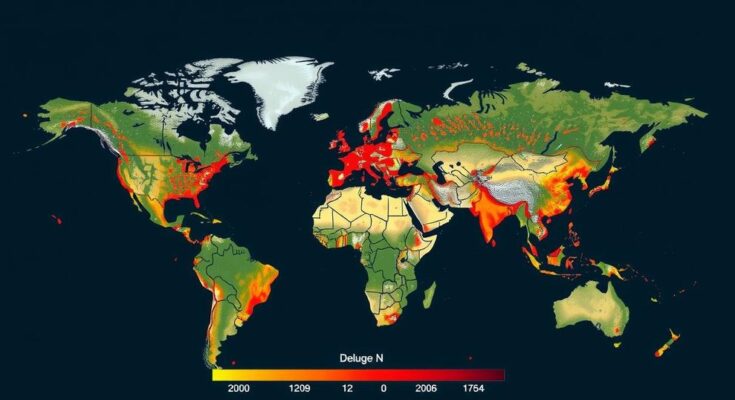A study by Stanford and Harvard researchers estimates that climate change is responsible for nearly 20% of current dengue cases worldwide. The research predicts a potential increase in dengue cases by 40-60% by 2050 due to rising temperatures. Significant risks are concentrated in dengue-endemic areas entering the optimal temperature range for transmission, which could see infection rates soar by 150-200%. Emission reductions could mitigate some of these projected increases, though a majority of the studied countries will likely experience heightened risks regardless of mitigation efforts.
A recent study by researchers at Stanford and Harvard Universities suggests that climate change accounts for nearly one-fifth of current dengue cases worldwide. This research indicates not only the role of climate change in the rise of mosquito-borne diseases but also predicts a potential increase in dengue cases by 40-60% by the year 2050. Findings were presented at the Annual Meeting of the American Society of Tropical Medicine and Hygiene. Erin Mordecai, a senior author and infectious disease ecologist, emphasized the direct correlation between rising temperatures and increasing dengue infections across 21 countries in Asia and the Americas. Historical climate change has already raised dengue incidence by 18%, with projections indicating further dramatic increases in certain regions. Geographic analysis reveals that regions historically under 20-29°C, particularly in parts of Peru, Mexico, Bolivia, and Brazil, face the most significant future risks, with potential infection increases of 150-200%. Conversely, areas already experiencing high temperatures, such as southern Vietnam, may see minimal or no additional climate impacts. Approximately 257 million individuals reside in areas where climate change could double dengue incidence in the next 25 years. The study may underestimate the threat, as areas like sub-Saharan Africa and South Asia have inconsistent infection tracking. The authors advocate for emission reductions to mitigate climate change impacts, suggesting that strong action could lessen expected increases in dengue cases by 2050, although predictions indicate that the majority of studied countries will still face heightened risks under various climate scenarios.
This study highlights the alarming intersection between climate change and public health, particularly concerning mosquito-borne diseases such as dengue fever. With the changing climate, warmer and more humid conditions have enhanced the transmission of dengue, enabling outbreaks in regions that were previously unaffected. The study’s data effectively illustrates the global shift concerning disease incidence, particularly in tropical and subtropical areas, where the potential for increased transmission exists due to rising temperatures. Understanding the direct links between climate conditions and disease prevalence is pivotal for public health planning and response strategies.
In conclusion, the research uncovers the substantial impact of climate change on dengue fever incidence, noting current cases and alarming future projections. With evidence supporting the connection between rising temperatures and increased infection rates, it becomes critical for global health authorities to acknowledge these trends in order to implement effective mitigation strategies. Reducing greenhouse gas emissions could significantly influence the future trajectory of dengue cases, underscoring the importance of taking immediate action against climate change to protect public health.
Original Source: www.theweek.in




